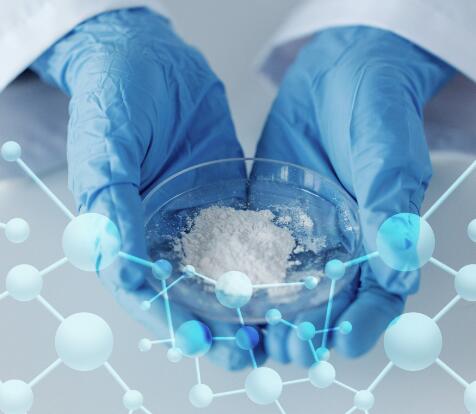Nov. 08, 2023
Chemicals
Chemical raw materials comprise a large number of substances that are the basis for countless products in different industries. Classification of these materials is critical to understanding their properties, applications, and role in various processes. As a supplier of chemical raw materials, TJCY will have an in-depth discussion on the classification of chemical raw materials.

1. Basic Chemicals:
a. Inorganic Chemicals:
Inorganic chemicals form the foundation of many industrial processes. They include acids, bases, salts, and minerals. Acids, like sulfuric acid, are crucial in chemical synthesis, while bases, such as sodium hydroxide, play a role in neutralization reactions. Salts and minerals find applications in diverse sectors, from agriculture to manufacturing.
b. Organic Chemicals:
Organic chemicals are carbon-based compounds, encompassing a vast range of substances. This category includes hydrocarbons and their derivatives. Alcohols, ethers, and organic acids fall under organic chemicals, serving as key components in the production of plastics, solvents, and pharmaceuticals.
2. Specialty Chemicals:
Specialty chemicals are unique substances designed for specific applications. These chemicals often provide high value and are used in relatively smaller quantities compared to basic chemicals. Examples include:
a. Catalysts:
Catalysts facilitate chemical reactions without being consumed in the process. They play a pivotal role in industries such as petrochemicals and pharmaceuticals, increasing reaction rates and improving efficiency.
b. Adhesives:
Adhesives are essential in bonding materials together. From industrial applications to consumer products, adhesives contribute to the assembly and construction of various items.
c. Additives:
Additives enhance the properties of materials. In the context of polymers, additives can improve strength, flexibility, or flame resistance. They are crucial for tailoring materials to specific requirements.
3. Polymers:
Polymers are large molecules composed of repeating structural units. This category includes plastics, rubber, and fibers. Polymers find applications in a multitude of industries, from packaging and construction to healthcare and automotive manufacturing.
4. Fine Chemicals:
Fine chemicals, also known as specialty or performance chemicals, are produced for specific applications. They often require high levels of purity and precision. Fine chemicals play a vital role in pharmaceuticals, electronic materials, and other advanced industries.
5. Agrochemicals:
Agrochemicals are chemicals used in agriculture to enhance crop production and protect against pests and diseases. Fertilizers, pesticides, and herbicides are essential components of modern agricultural practices, contributing to food security and sustainability.
6. Biochemicals:
Biochemicals are chemicals derived from living organisms. They play a crucial role in pharmaceuticals, biotechnology, and healthcare. Examples include enzymes, amino acids, and various biomolecules used in research and industrial processes.
7. Extractive Industries:
Raw materials obtained from natural sources fall into the extractive industries category. This includes minerals, ores, and fossil fuels. The extraction and processing of these materials are fundamental to industries such as mining, energy production, and metallurgy.
8. Intermediates:
Intermediates are chemicals used in the intermediate stages of a production process. They are often transformed into final products through subsequent reactions. Intermediates contribute to the efficiency and control of chemical manufacturing processes.
9. Fuel and Energy Chemicals:
This category encompasses chemicals used in the production of energy. It includes traditional fuels like gasoline and diesel, as well as emerging energy sources and fuel additives designed to improve combustion efficiency and reduce environmental impact.
10. Electronic Chemicals:
Electronic chemicals are specialty chemicals used in the electronics industry. They play a critical role in semiconductor manufacturing, circuit board production, and other electronic applications. Examples include photoresists, etchants, and dopants.
In conclusion, the classification of chemical raw materials is a complex and multifaceted task due to the diverse nature of these substances and their applications. Understanding these classifications provides a framework for navigating the intricate world of chemical manufacturing and ensures the efficient utilization of these materials across various industries.
If you are interested in sending in a Guest Blogger Submission,welcome to write for us!
All Comments ( 0 )